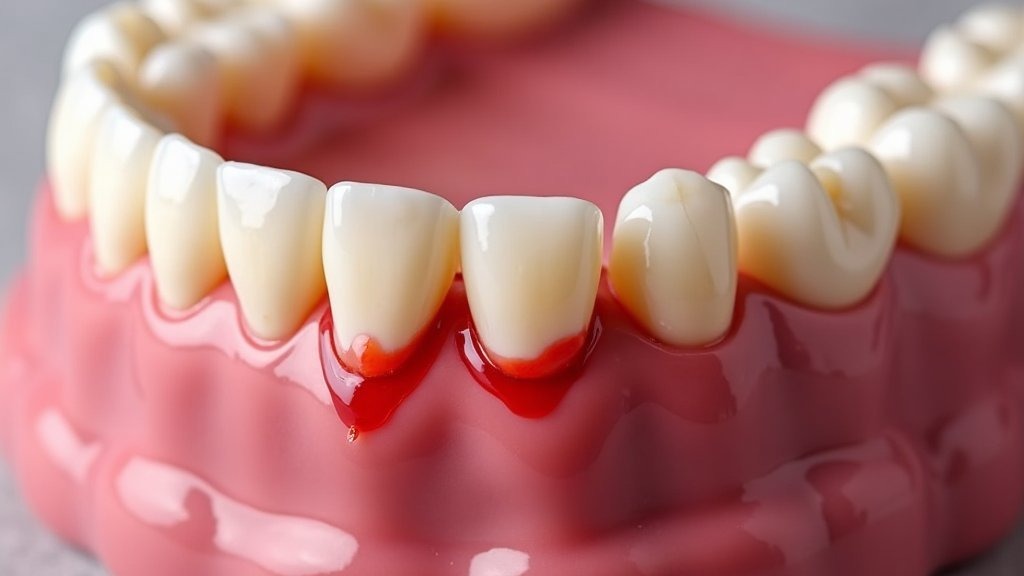
Understanding Gum Disease Symptoms: What You Need to Know
As we age, the health of our gums becomes increasingly important, yet gum disease tends to be a topic many prefer to overlook. Far too often, symptoms of gum disease are mistaken for harmless issues, but it’s crucial to recognize them before they escalate. In this article, we’ll explore the alarming signs of gum disease, specifically gingivitis and periodontitis, and how they can affect not just your oral health but your overall wellness, self-confidence, and quality of life.
Bleeding Gums: A Common Yet Important Warning
One of the most noticeable symptoms of gum disease is the presence of bleeding gums. This can occur during brushing or flossing, or at times even without provocation. Many TV commercials highlight this stark visual, yet the truth is that bleeding gums can be easily dismissed as a minor inconvenience when it is anything but. When bleeding occurs more than once, it's essential to consult a dentist, as this could indicate that gum disease is present. Early intervention can often prevent more serious consequences down the line, such as tooth loss.
Red or Inflamed Gums: An Indicator of Trouble
Healthy gums exhibit a vibrant pink hue; when they take on a deeper red shade, inflammation is often at play. In addition to a color change, feelings of discomfort while chewing may signal the onset of gum disease. Most individuals will choose to ignore these subtler signs, believing them to be a normal part of aging. However, paying attention to these details enhances your ability to act sooner rather than later.
Sore Gums: Painful Reality
Gum sensitivity or soreness can indicate that you may be developing more severe gum conditions. If chewing becomes painful, delaying treatment can lead to complex procedures like 'deep cleaning'—a far more invasive and costly intervention. It’s best to contact your dentist for advice or a check-up if discomfort persists.
Halitosis: The Silent Partner of Gum Disease
Bad breath is another potential indicator of gum health concerns, often embarrassing for the individual affected. Those suffering from halitosis may feel socially vulnerable, as it can be challenging to identify one’s own breath problems. Regular dental check-ups can help avoid the social stigma attached to bad breath, ultimately enhancing both dental health and self-esteem.
Receding Gums: The Tricky Transformation
When gum disease progresses, you may begin to notice the unsettling phenomenon of receding gums. As the gums pull away from the teeth, this may expose the sensitive tooth roots, leading to increased sensitivity and the likelihood of tooth decay. Gaining insights about this symptom empowers patients to take their dental care more seriously, and can also invoke proactive discussions with their dentists.
Loose Teeth: A Sign of Advanced Gum Disease
If your teeth start to feel loose, this is often a sign that periodontitis has set in. Gum disease can weaken the structures supporting your teeth, leading to a heightened risk of tooth loss. This symptom is one of the more urgent indicators necessitating immediate dental attention—nipping the problem in its bud could mean the difference between saving a tooth or facing costly replacements.
A New Perspective on Gum Health: Embracing Prevention
Maintaining healthy gums is not simply about prevention; it’s about enhancing your overall quality of life. In the fast-paced world we live in, where appearances can often take center stage, ensuring a beautiful smile and healthy gums can significantly influence self-confidence. A healthy mouth can often translate into psychological and emotional benefits that extend beyond aesthetics. For adults, particularly those aged 40 and upward, regular visits to the dentist can remind individuals that maintaining oral health is a worthwhile investment in their well-being.
**Concluding Thoughts on Gum Disease Awareness**
In closing, be proactive about your gum health. If you notice any signs of gum disease, contact your dental care provider immediately. Taking action at the initial stages can significantly reduce the risk of complications down the line, protecting your health and smile well into your golden years.
 Add Row
Add Row  Add
Add 




Write A Comment